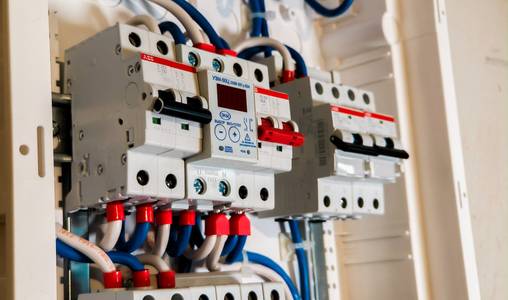All electrical systems and appliances will decline over time, which is why it’s important to have them tested and inspected periodically to make sure they are working to a satisfactory level and in a good condition. The inspection should be carried out by a qualified electrician, so it’s performed to a higher standard.
All the tenant is required to do is report any electrical faults as soon as they see a problem and allow access to the landlord/electrician to their home for safety inspections and repairs.
If you’re a landlord then due to the ‘Electrical Safety Standards in the Private Rented Sector (England) Regulations 2020’ that came into action on 1 June 2020, you are now required to make sure that all electrical installations in their properties are inspected and safety tested by a registered electrician at least once every 5 years. If the tenant moved in before 1 June 2020, then the landlord has an obligation to make sure the first inspection is done by 1 April 2021.
If the property was built or rewired within the last 5 years, then a landlord can provide their tenant with an EIC (electrical installation certificate) to prove that safety checks don’t need to be carried out yet.
This makes sure that landlords are only offering safe, secure, and high-quality housing to current and future tenants.
What happens during the inspection?
The electrician will only inspect and test the permanent fixtures on the property. This will include bonding, wiring, sockets, light fixtures, fuse boxes and electrical appliances such as extractor fans and electric showers. While they make the inspection, they will instantly see the extent of any deterioration or damage to the electrics in the property.
Electrical appliances that can be moved, such as white goods and TVs, will not be checked by the electrician (unless they were originally supplied by the landlord). In which case the landlord would ask the electrician to perform a PAT (portable appliance test) to check over the safety of the item in concern. PAT tests are not legally required by landlords, but do fall under a general safety bracket, meaning they are recommended to keep the property safe.
Any hazards that they may find will be addressed before they leave the property (in some cases, further remedial work may be required and a danger notice may need to be issued). All equipment will also be switched on and off to check for any defects.
Once the inspection is done, the landlord is required to provide their tenants with a copy of the electrical safety reports to prove that is has been done to a professional standard.
What do the new regulations require?
Landlords of privately rented accommodation must ensure that all electrical installations in their tenants’ properties are inspected and tested by a qualified and compliant electrician at least once every 5 years. Following the inspection, they must:
- Ensure the national standards for electrical safety are fully met to the standards of the ‘18th edition of the Wiring Regulations’.
- Obtain a report from the electrician that carried out the inspection and conducts any necessary work. This report will give the results of the inspection and whether any further work is required. If further work isn’t required, it will set a date for the next inspection.
- Supply the tenant of the property with a copy of this report within 28 days of the inspection being carried out. If another tenancy is set to start, then the new tenant should receive a copy of the report before they move into the property.
- Supply a copy to any prospective tenant within 28 days of receiving a request for the report.
- If a local authority requests a copy of the report, then the landlord must supply this within 7 days of receiving the request.
- Provide a copy to the electrician who undertakes the next inspection.

Your Local Electrical Specialists
We fix, install, and inspect your electrics without fuss.
Book Your Electrical Check TodayWhat happens in the event of an unsatisfactory safety check?
Once the property is inspected by an electrician, they will feed back to the landlord via a report. If the report identifies any urgent corrective work to be done on the property or requires ‘further investigation’, then the landlord has an obligation to ensure that the work required is carried out by a qualified professional within 28 days of receiving the report (or less if specified in the report).
Once the work is carried out, the landlord must then obtain written confirmation of the competition of the work being carried out and that the work has been carried out to a high level. The confirmation must say whether the electrical safety standards are properly met, or whether more work is required first.
When all work is done, the landlord must supply a copy of both the original electrician report and the written confirmation to all existing tenants of the property within 28 days of the work being completed.
What happens if a landlord doesn’t follow the new regulations?
If a notice of corrective work is ignored and the landlord fails to take action to fix any problems with the property within 28 days, then authorities have the power to arrange for the work to be carried out anyway with consent of the tenant. Once the work is carried out, the costs of the work will be recovered from the landlord.
If local authorities find that a landlord is in breach of their duty to follow new regulations in any way, then a financial penalty of up to £30,000 can be imposed upon them.
Landlords must make sure that their property is safe and fit for tenants to live in throughout the length of their tenancy. They are in charge of keeping electricals, wiring and installations in a good working order under the terms of ‘The Landlord and Tenant Act 1985’.
Most landlords will be on top of ensuring the safety of the tenants that live in their homes throughout their tenancy, meaning they are the first point of call when their tenants have any safety issues in their homes. But there is a small section of landlords that don’t adhere to safety standards and upkeep, putting their tenants in danger as a result of this. This regulation is in place so that everyone has the right to live in a property that’s safe and up to code.
With experts in plumbing, drains, gas, electric, glazing, locksmithing and pest control, we are available 24/7, 365 days a year. If you need registered, experienced professionals to help with an electrical inspection, give us a call on 0330 108 4111






